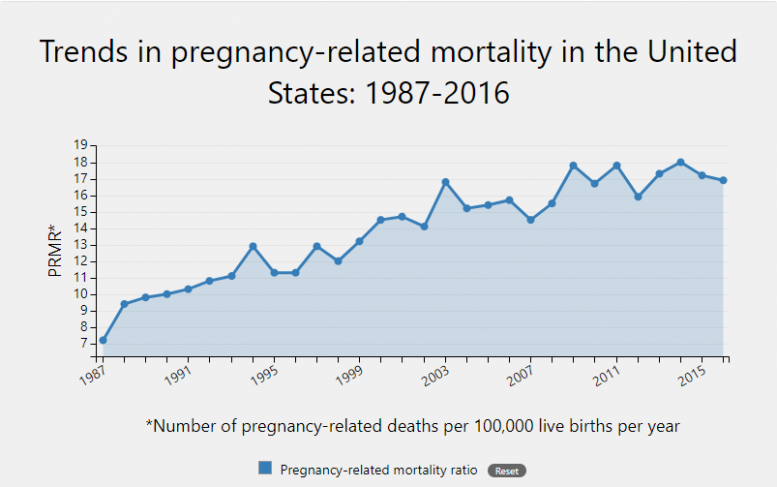By Susan Tebben
Ohio Capital Journal
Just weeks after the birth of her twin daughters in 2004, state Rep. Erica Crawley, D-Columbus, went to an emergency room with severe abdominal pain.
At the time, she was breastfeeding her girls, and was still recovering from the trauma of their emergency C-section.
She sat in the waiting room for hours in pain. She wasn’t sure what was going on inside her, but she felt no urgency from hospital staff.
“They later told me there was a pocket of blood causing the problem, and they just said, ‘it will dissipate eventually,’” Crawley said.
Crawley recovered, but now she’s taking her story, along with many others she’s heard, with her as she pushes forward with legislation to address maternal mortality, particularly in women of color.

She and other members of the Ohio Black Maternal Health Caucus are setting their sights on a legislation and awareness campaign in 2020.
This includes state Rep. Stephanie Howse, D-Cleveland, who recently returned from a trip to El Salvador, where she visited women imprisoned under one of the world’s strictest abortion bans, and met with health advocates and educators.
Delegates from Alabama, Florida, Arizona and Georgia came as well, as part of the State Innovation Exchange’s Reproductive Freedom Leadership Council.
Howse came back from that trip wanting to develop a better concept of women’s health and reproductive rights in the state.
“We want women and girls to truly understand that they are valued,” Howse said. “…that they understand they are here, that they belong here and as long as you’re here, we are going to be cheering you on…and we are going to protect you.”

The Black Maternal Health Caucus plans to spend the beginning of the year focused on a strategic plan to improve data about reproductive health and rights, increase education through events like Black Maternal Health Week in April, and see growth in patient health and the overall quality of life for women and girls.
Across the board, what the Centers for Disease Control and Prevention calls “pregnancy-related deaths” have increased in the last three decades.
According to the CDC, pregnancy-related deaths were at 42.4 per 100,000 live births for black non-Hispanic women between 2011-2016. For white non-Hispanic women, the number was just 13 deaths per 100,000 live births.
Crawley cited a report from the Pregnancy Associated Mortality Review Board in introducing new legislation on maternal mortality. The PAMR report noted 186 deaths in Ohio between 2008 and 2016 as pregnancy-related. The report also found that black women died over two-and-a-half times more than white women.
House Bill 434, which currently sits in the House Health Committee, requires an annual report from PAMR, which is not currently a part of state law.
“We need to make sure the people who are creating laws and policies understand what is true and what is happening,” Crawley said. “I don’t want another woman to die from something that is preventable.”
Causes of these deaths have increasingly been blamed on chronic health conditions like hypertension, diabetes and heart disease.
But one of the biggest problems, as Crawley sees it, is women not being heard when they have a health concern.
“One of the reasons is discrimination,” Crawley said. “It’s the implicit and explicit bias within the healthcare system.”
Howse said the caucus wants Ohio to grow in line with the Alliance for Innovation on Maternal Health’s program for maternal safety, and include reimbursements for doulas and birth workers.
“It’s the practices that hospital systems will adopt that will ensure and that will significantly reduce maternal mortality and morbidity,” Howse said.
Crawley’s House Bill 435 would require hospitals and birthing facilities to train employees on maternal health and pregnancy-related complications, along with creating cultural competency training.
That house bill is also awaiting review by the House Health Committee.





